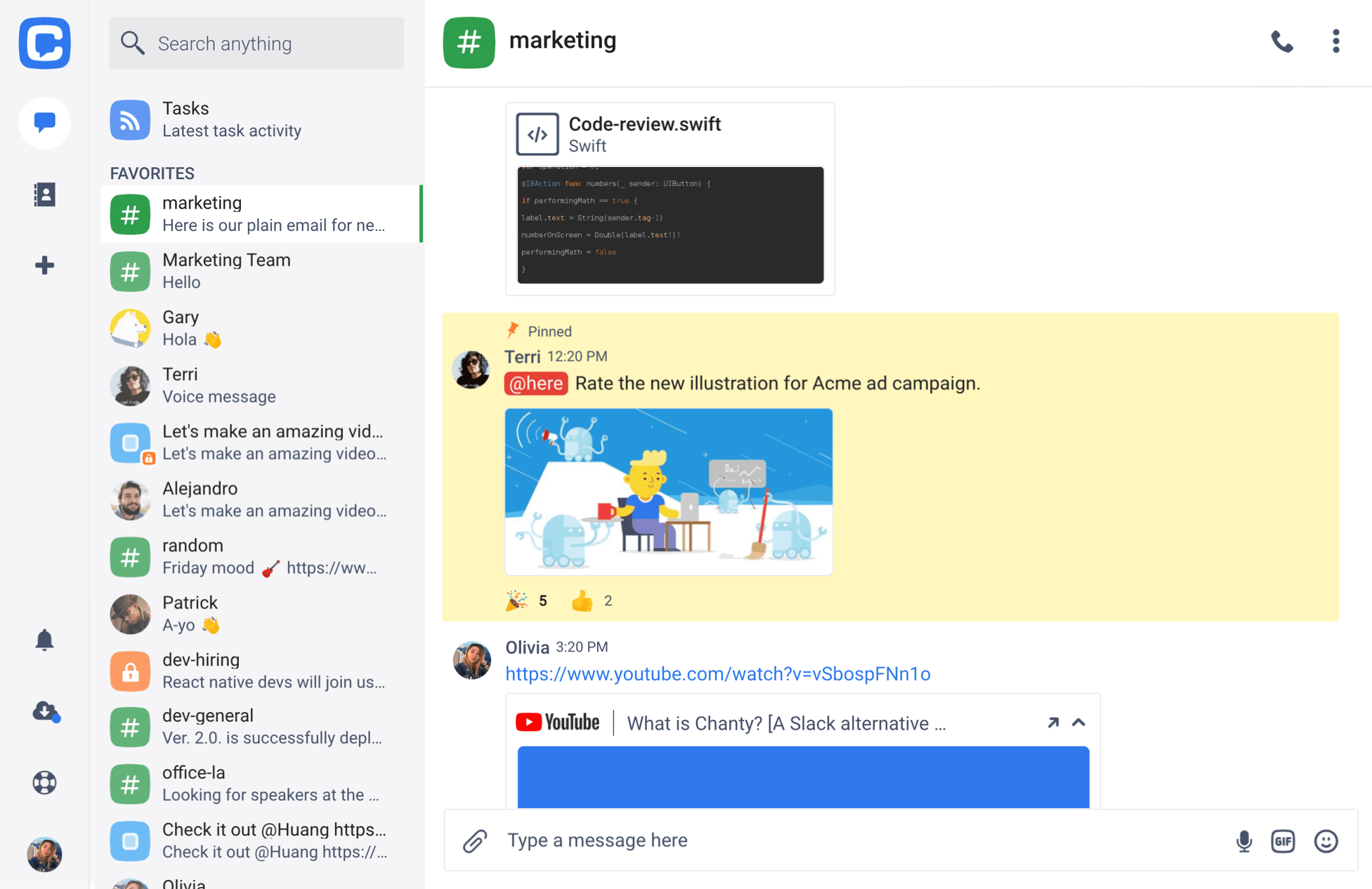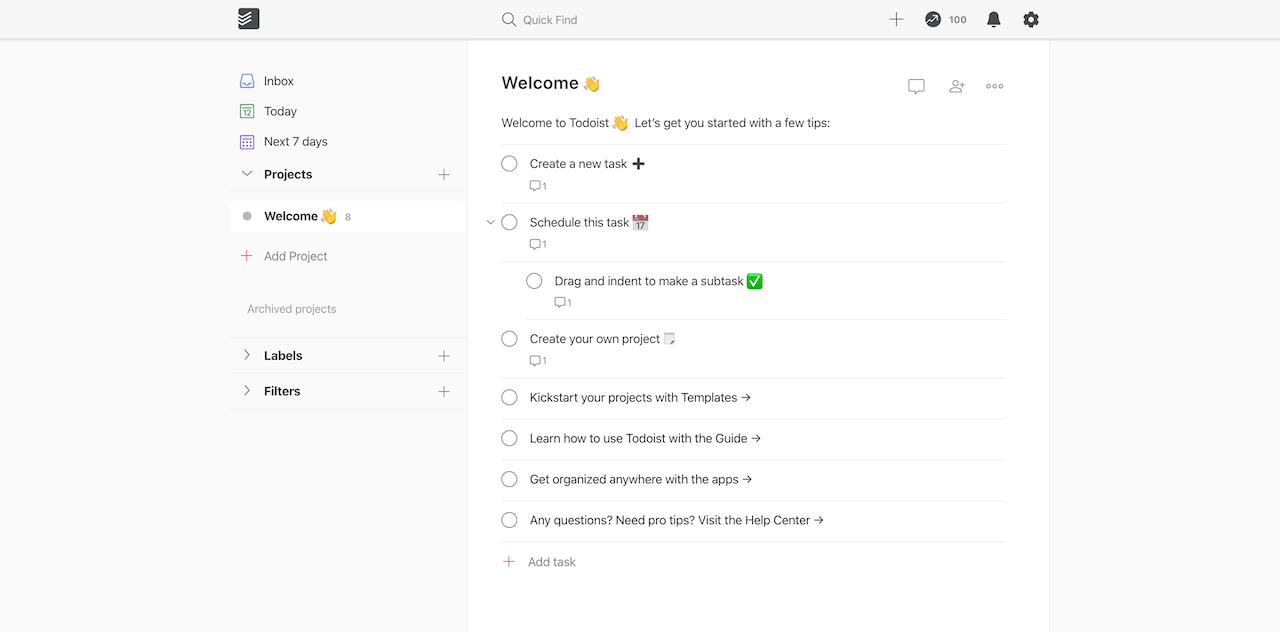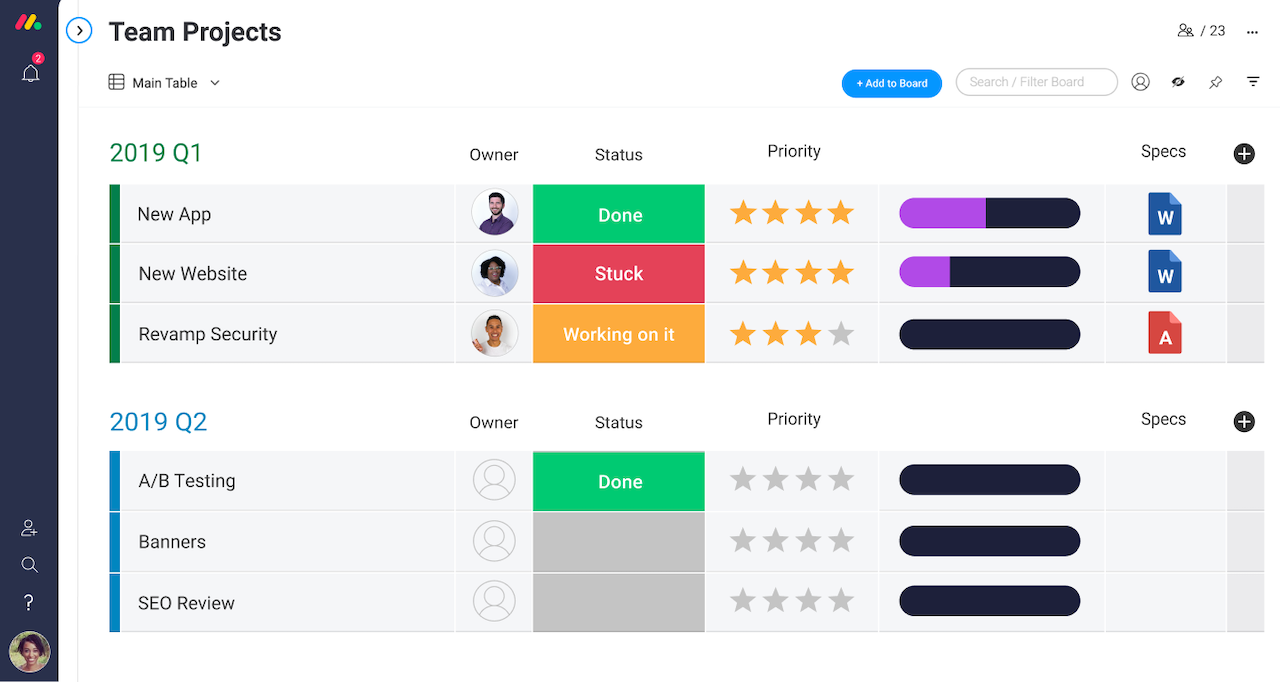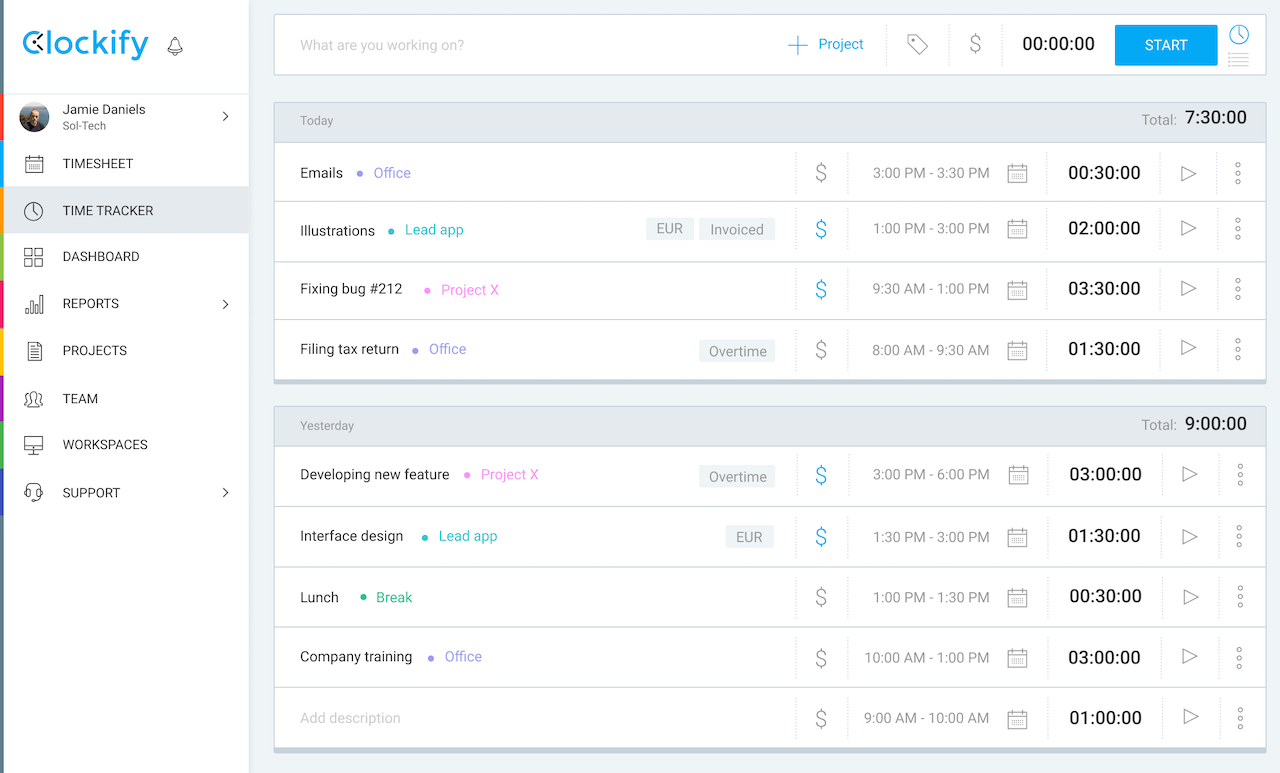
No matter how driven you are, you’re most definitely not immune to burnout – especially when you’re doing everything yourself as a solopreneur.
You don’t have a full-fledged team to delegate all the leg work (at least not yet). Instead, you’re tackling most of it yourself. But that doesn’t mean you can’t be productive and fulfilled. Remember why you started your business in the first place – perhaps to give yourself more schedule autonomy and freedom with your time, not the other way around.
So how can you run your business without letting it run your life?
The key to keeping the dream alive is to set boundaries and develop strategies that build two successful worlds driven by work and life priorities. Accountability and responsibility go hand-in-hand with solopreneurship, but this doesn’t mean you have to do everything yourself.
Systemizing your workflow using powerful strategies will improve productivity and help you avoid burnout. The following strategies can help you to create and optimize your ideal workflow and personal life:
- Organize your schedule
- Automate and outsource
- Prioritize well-being
- Ditch perfectionism
Read on to learn how to apply these strategies to your business and live the life you deserve.
Productivity strategies for solopreneurs
1. Organize your schedule
Be crystal clear with what you have to do.
Planning your day, week, or a full month ahead will create a system and a sense of motivation to succeed. But satisfaction comes from the moment, instead of just achieving your goals. And so, keeping your schedule well-organized and determining your work hours and time-off will help you enjoy the process and complete your tasks one at a time.
So, how to build an optimal schedule to fit your work and social life? The internet offers multiple useful tools for assisting you in organizing and decluttering your life in a matter of minutes. Literally!
Leverage productivity apps
As a solopreneur, you spend a lot of time juggling overlapping tasks and maintaining your schedule. Fortunately, several tools can help you manage both your time and your business. I’ve highlighted two below.
♦ Chanty – Improve team communication
Chanty is a task management app offering a wide range of marketing organizers that can help to increase your focus, deliver projects on time, and encourage team satisfaction by organizing your content, social, and work assessments all in one place.

♦ Todoist – Create a dynamic to-do list
Todoist is a simple to-do list app that can help you do more and stress less. It provides structure for your schedule by producing a clear overview of your tasks, projects, and goals.
Todoist is used by millions of people, including the Principal Designer of Adobe Khoi Vinh, who said, “I literally couldn’t do my job or even manage all the business of being a fully functioning parent and spouse without Todoist.” Similarly, I use Todoist to organize my tasks, and more importantly, to keep a check on my work week.

♦ Monday.com – Improve team and task management
Monday.com is a task management platform that simplifies the way teams work together. You can plan, track, and collaborate on projects with one tool. Katherine Simano, an Associate Art Director at Discovery Channel, said: “It’s a great tool that allows us to organize our work visually in a way that is easy to use and understand.”
Organize complex projects and use Monday’s team collaboration software to manage interns, freelancers, VAs, and other part-time employees.

Improve workflow with time tracking tools
♦ Clockify – Keep track of your schedule with time tracking software
Clockify is a 100% free time tracking software for teams that lets freelancers track working hours while offering reports, spreadsheets, and managing projects. On a similar note, you can pair up Clockify with Todoist to integrate time tracking in your tasks.

2. Automate and outsource repetitive and time-intensive tasks
According to The Solopreneur Institute, a solopreneur can be defined as: “An entrepreneur who prefers the freedom to run a business without any W-2 employees.”
So technically you’re not solo, as you get to work with other people, outsource, and not hire W-2 employees. Instead of trying to complete tasks by yourself, be efficient, automate, and outsource as much as possible.
For starters, you can outsource and automate a few areas:
Create templates
Templates provide flexibility and can help save you precious time by providing a form of consistency across all your projects with easy updates.
For this reason, it’s a good idea to create a template for repetitive tasks such as emails, or even blog posts. A good example is to create an article tracker with Microsoft Excel or Google Sheets to create and edit files online and collaborate on them with others in real-time to visualize what you’ve created, and existing plans.
Email management
This is where the template creations come to life. Create a couple of general email responses to commonly asked questions that can be applied to multiple clients, while changing some details (e.g., name of the recipient). You can also use your favorite email marketing service to automate newsletters and campaigns.
Social media creation and distribution
Social media can be exhausting and time-consuming. Regularly creating engaging, valuable content for your audience is an arduous necessity. Thankfully, scheduling posts was never more convenient.
Ideally, you should post several times a week on multiple platforms. This doesn’t include commenting and replying to potential clients and supporters. So, realistically, it’s impractical to do it all alone.
Alternatively, set a time in your weekly schedule dedicated to planning all your social content so you can focus on more meaningful tasks throughout the week. Outsourcing and automating social media tasks shouldn’t be viewed as a failure to do things by yourself, but rather as a useful time-saver.
3. Prioritize well-being
Personal well-being is often ignored, but it is fundamental to your health, enabling you to successfully overcome difficulties and achieve life and work goals.

Investing insane hours at the office may pay off eventually, but without proper maintenance, your health, much like a poorly maintained car, will throw a “check engine” light.
Instead, check-in with yourself regularly. Make time for routine introspection, self-care, and prioritize sensible work hours. Incorporate the following well-being habits into your weekly schedule:
Schedule weekly ‘me time’
Discover what you love and enjoy. And, most importantly, make it a habit.
An essential part of success is knowing when to check in with yourself and unplug. If it’s meditation, yoga, reading, or spending time alone, it’s essential to build a sustainable ‘me time’ routine.
For example, the principal founder and chairman of Microsoft Corporation, Bill Gates, created a ritual of taking a ‘think week’ utterly secluded from civilization — alone with his thoughts. In other words, he adopted twice-yearly quality time alone ritual since the 1980s. Although he dedicates this time for developing proposals, he excludes himself from the distractions and everyday life.
Nourish your body from within
Nourishing your body to maximize productivity and maintain good health, is sadly forgotten and overlooked by many solopreneurs.
Unhealthy eating habits contribute to the growing obesity epidemic. The data shows that nearly 33.8% of Americans suffer from obesity, and a sedentary lifestyle, rife among solopreneurs, can quickly become a problem.
To avoid this, here are a couple of healthy tips:
- Eat lots of fruit and vegetables.
- Eat more fish, including oily fish, at least once a week.
- Eat less salt, 6g (i.e., 1 teaspoon) is the limit for an average adult.
- Avoid sugary and processed foods.
- Stay hydrated, drink at least 2L of water every day.
- Always check your posture to ensure you’re not slouched for several hours.
This may be challenging if you lack cooking skills or motivation. In that case, consider using a meal delivery service. When in doubt, consult a nutritionist for personalized diet guidance. Maintaining a healthy mind and nourished body will only benefit your business in the long run.
4. Ditch the quest for perfection
Perfectionism, a “refusal to accept any standard short of perfection,” is often revered and highly unattainable. As a result, it is the cause of endless procrastination and personal insecurities that simply slow us down.

It’s time for a reality check! Building your business with perfectionism in mind can ruin your life. To maintain a competitive advantage, you need to develop a clear business strategy, goals, and action steps. Develop a framework for setting your business goals.
Sure, you should hold yourself to high standards, but don’t let perfectionism keep you from taking action. Overcome perfectionism by implementing the following tips:
Learn to recognize perfectionist tendencies
Ask yourself the following questions and observe your responses:
- Do I have trouble meeting personal standards?
- Do I feel frustrated or depressed when completing tasks?
- Do my standards restrict me? For example, do I spend too much time on simple tasks or insignificant goals?
If you answered “Yes” to any of the above questions, you might face debilitating perfectionist tendencies.
Use mindset hacks to overcome perfectionism
Changing your mindset is the next step to overcome perfectionism. It can be as simple as:
- Practicing more realistic and helpful statements, such as “Nobody is perfect,” and focus on being “less wrong” instead of being “right.”
- Zoom out and quit worrying about ‘the little things,’ such as what font to use in an email or sales brochure.
- Eliminating negative thoughts by imagining how another person may look at the situation. For example, will that person even notice you spent X minutes choosing the perfect font?
Reward yourself
Don’t be too hard on yourself and reward all your achievements, big and small. This can be as simple as buying fresh flowers, going to the local bakery, taking the afternoon off, or having a couple of drinks with friends.
This rewarding time well-spent can increase your motivation and give you a fresh new perspective as you reengage on your next project. As a result, it also improves and helps to regain control of your work-life priorities.
Be good to yourself
Let’s face it. We’re all different, and no one strategy fits all. Even though we can be our worst critics, we also know what works best for us.
Experiment, implement and be patient with each strategy tweaking as you go.
The challenges of solopreneurship are real, but they aren’t impossible to overcome as long as you set your mind to achieve and maintain work-life priorities that work for you.
Mark Quadros is a freelance content marketer who helps SaaS and online businesses develop content that not only drives traffic but also boosts user-engagement. In his free time, he loves traveling the world and living a minimalist life from his backpack.
© YFS Magazine. All Rights Reserved. Copying prohibited. All material is protected by U.S. and international copyright laws. Unauthorized reproduction or distribution of this material is prohibited. Sharing of this material under Attribution-NonCommercial-NoDerivatives 4.0 International terms, listed here, is permitted.













